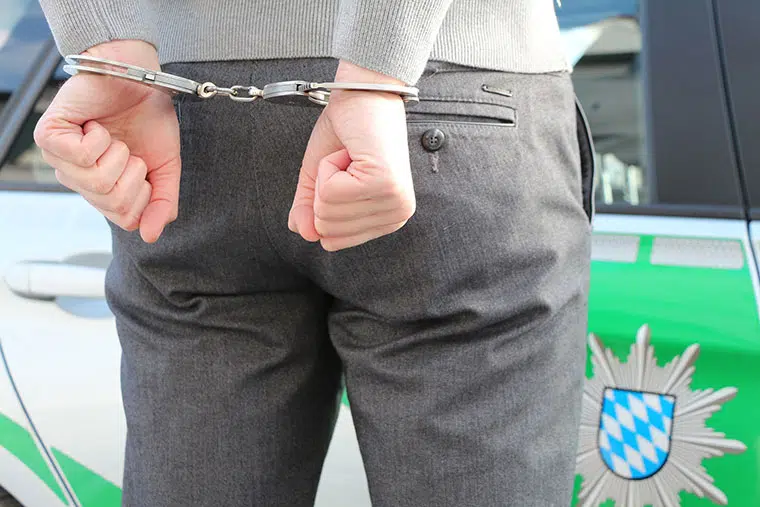Getting arrested is a stressful experience. Suddenly your life stops, and you have to worry about the possibility of going to jail and what that means for your present and future.
Canada’s Charter of Rights and Freedoms guarantees Canadian citizens, permanent residents and newcomers certain rights when arrested, and criminal lawyers in Toronto will advise you that using these rights is crucial to getting the best outcome for your case.
You can be arrested because the police suspect that you were involved in a crime or because you have a warrant for arrest in Canada issued against you. So what should you do if you’re arrested? Keep reading to find out.
Are You Being Arrested or Detained?
First, there is a difference between being arrested and being detained, which affects the rights you have.
Police are allowed to detain anyone they suspect was involved in a crime. You are being detained when police stop you and inform you they have reasonable grounds to believe that you were involved in a crime and will usually start asking you questions. If you’re not sure if the police are detaining you, ask if you are free to leave. If they say no, you are being detained. Police are only allowed to detain you briefly, and they must tell you why they are detaining you.
If you’ve been detained, police are allowed to pat you down with their hands and take away any weapons they find. They are also allowed to look through your vehicle’s windows if you were driving at the time. They are not allowed to empty your pockets, purse or bag or search your vehicle.
If police feel they have reasonable grounds to charge you with a criminal offence, they will place you under arrest. At that point, they will likely put you in handcuffs and take you into custody. If you are under arrest, police can then search you, your vehicle and the area you were arrested more thoroughly. If you are arrested, do not resist or get violent!
Your Right to a Lawyer
Whether you’ve been detained or arrested, police must:
- Tell you why you have been arrested or detained and why they are investigating you.
- Inform you that you don’t have to say anything and that you have the right to speak to a lawyer.
- Tell you about your right to free legal advice through Legal Aid (and provide you with the toll-free, 24-hour phone number that connects you to duty counsel if you ask for it).
- Provide you with a phone and allow you to speak to a lawyer in private as soon as it’s possible, if you ask to do so.
You have to tell the police that you wish to speak to a lawyer. At that point, the police must stop questioning you and allow you to seek the advice of an attorney, and you must make reasonable attempts to do so. If you don’t speak up, the police do not have to let you speak with a lawyer and can continue questioning you.

Credit: cottonbro Via: Pexels
If you have spoken with a lawyer, the police will assume that you’ve received the advice you need and can continue the interrogation. It’s crucial that you understand what the lawyer has told you and are satisfied with the advice. If not, you must inform the police that you need to speak to your lawyer again or to another lawyer. The police do not have to let you speak to a lawyer a second time during the same interview unless:
- The first lawyer you spoke with was unable to advise you.
- They start asking you about a different, more serious crime.
- They want to use a different investigation tool like a lie detector test.
Unlike what you see on TV, you do not have the right to have a lawyer present with you during questioning – unless you are under 18 years of age.
Your Right to a Lawyer if You Are Under 18
If you are under 18 and are detained or arrested, the police must inform you that:
- You don’t have to say anything and that what you say can be used as evidence.
- You have the right to a lawyer and to contact your parents or guardian.
- And that you have the right to have both your lawyer and parents or guardian with you during questioning.
Your Right to Remain Silent
One of your most important rights when arrested or detained is the right to remain silent during questioning, and police must inform you of that right. Do not say anything until you’ve spoken to a lawyer!
If the police do place you under arrest, they have reason to suspect that you are guilty and are trying to get you to incriminate yourself. They may even say things that are deliberately untrue to get you to talk. It’s important to remain calm and say nothing or keep repeating that you do not wish to say anything.
Some people believe that if they’ve been arrested and charged with a less serious offence like theft under $5,000, breach of probation in Ontario or disturbing the peace, that a simple explanation will clear everything up. Even if you haven’t done anything wrong or feel that there’s been a mistake, do not try to explain yourself. There are nuances to the law you are being charged under and case law rulings about those offences that you will not know about. Anything you say will usually only make things worse for yourself.
It’s also critical that you remain silent if you’ve been arrested and feel you should confess because there’s no getting around a conviction. For example, the police may have arrested you for DUI because you failed a breathalyzer test or caught you “red-handed” with stolen property. It’s still crucial that you ask to speak to a lawyer right away and not say anything. If you confess, you accept the worst possible outcome to your case and lose possible defences you don’t know you have.
It Matters Who Represents You
The best way of helping yourself if you’ve been arrested or detained is by finding a good Toronto criminal lawyer and getting them involved as quickly as possible. Jeff Reisman has over 20 years of experience as both a prosecutor and defence lawyer, and he offers free consultations and 24/7 availability and client support.

